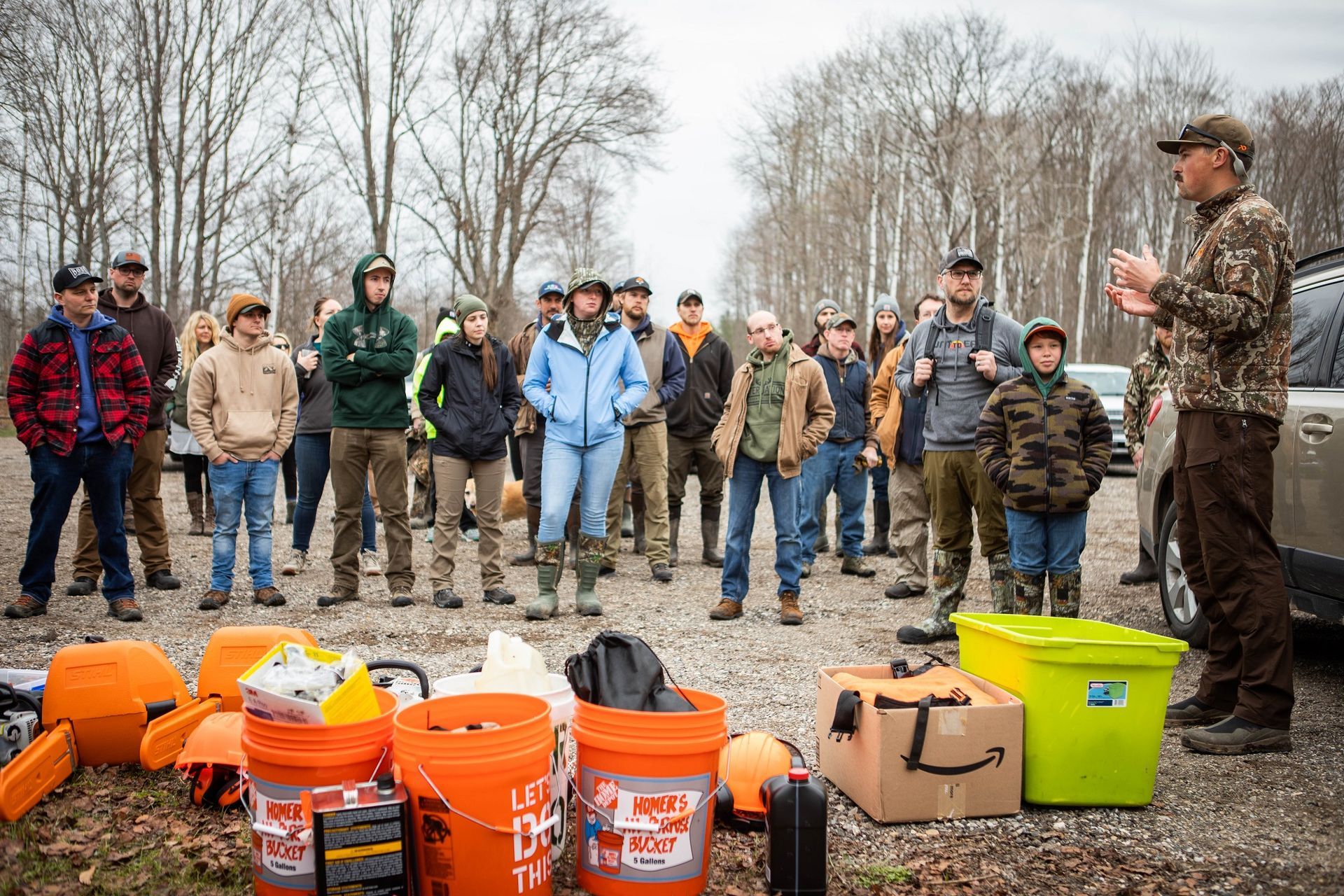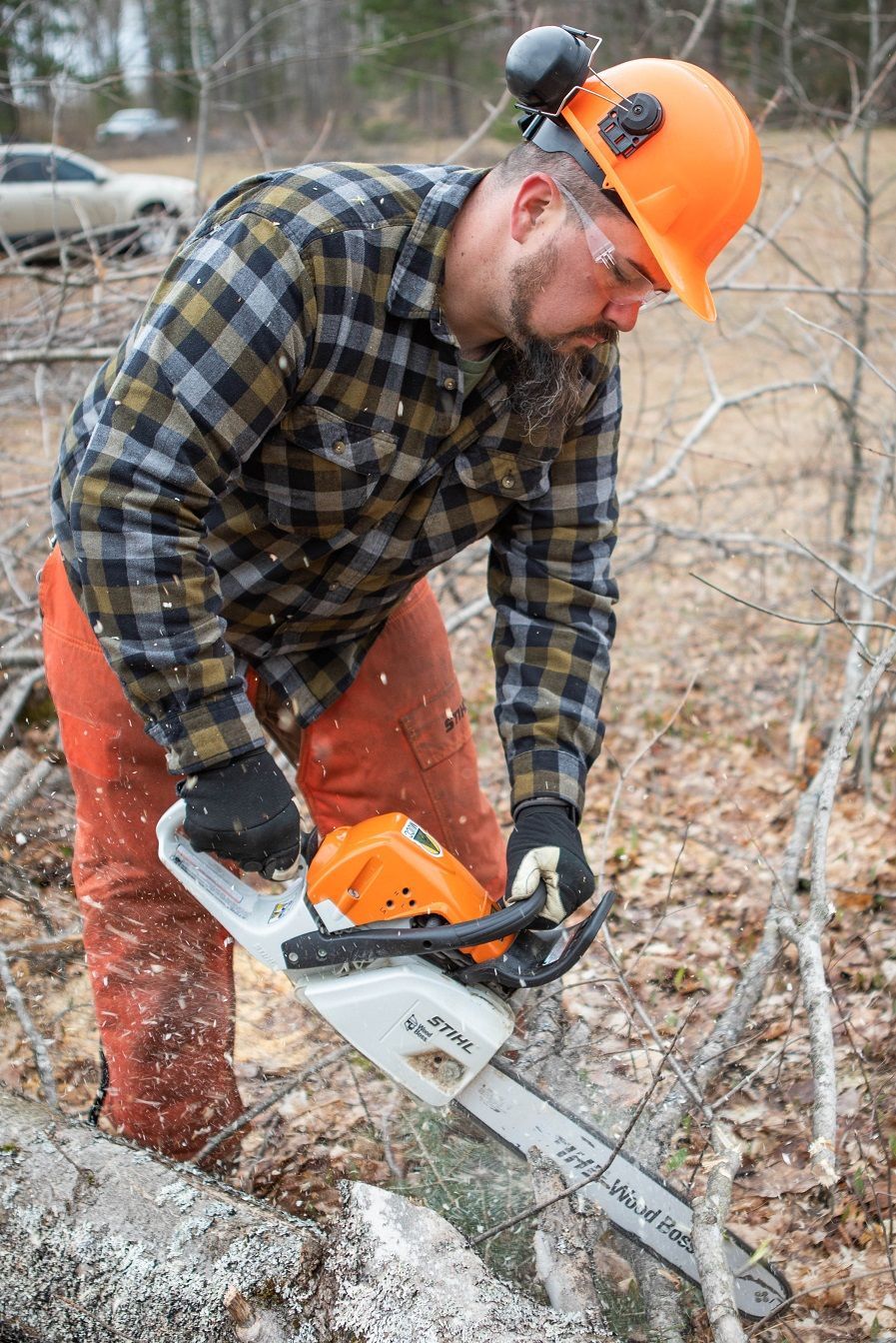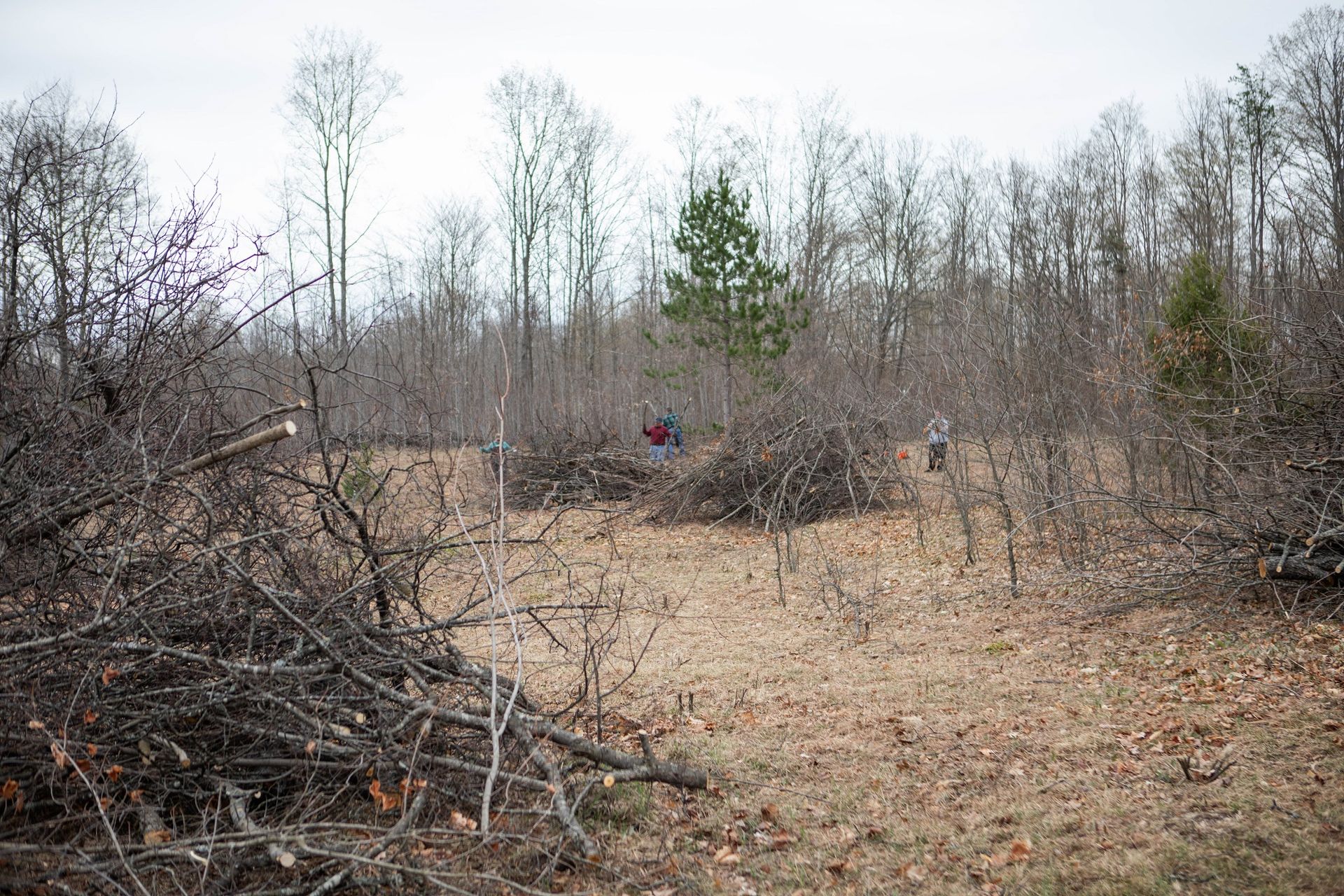Working for Wildlife: On the Ground volunteers return to Kalkaska County to build habitat, connect with fellow conservationists

Mark Kenyon, host of MeatEater’s Wired to Hunt podcast, addresses the group before heading out into the field.
On Saturday, April 22, 2023, 56 volunteers joined MUCC’s On the Ground program in partnership with Land Ethics LLC in constructing brush piles and softening edge-habitat in the Traverse City Forest Management Unit. For this project, we were joined by MeatEater team member, author, and Wired to Hunt podcast host, Mark Kenyon, as part of his Working for Wildlife Tour.
“Having open arms and bringing folks together is always going to help make a bigger difference and that’s something MUCC has done a very good job of,” said Kenyon.

OTG volunteer and MUCC Conservation Policy Board Member, Zach Snyder, bucks up downed trees for use in brush piles that provide habitat for small game.
Volunteers traveled from different corners of the state to participate in this habitat project. “I decided to come out today because I like to get involved with any conservation projects that MUCC hosts,” said Zach Snyder, a regular OTG volunteer and member of MUCC’s Conservation Policy Board. “Any time I can give back to the land is a good thing, and being that it’s Earth Day is the icing on the cake.”
In total, approximately 80 brush piles were constructed throughout 18 acres of wildlife openings. These sites are managed for use by a variety of wildlife including white-tailed deer, rabbits, wild turkey and other upland birds. Volunteers also removed trash from eight miles of trail on public land.
“Today’s event is great in itself,” Kenyon continued. “It’s great that we are improving habitat, but I think this can snowball into so much more. That’s why today is pretty special.”

Brush piles were constructed throughout five wildlife openings in the Traverse City Forest Management Unit.
Following the project, MUCC hosted a gathering for volunteers at a local establishment to share good conversation and some well-earned refreshments. After getting books signed and discussing the day’s events with Mark Kenyon, volunteers left feeling empowered to continue to play an active role in conservation.
An article detailing this event will be printed in the summer issue of Michigan Out-of-Doors magazine. If you would like to volunteer with On the Ground, please visit mucc.org/on-the-ground/ to learn more.
Recent Posts



